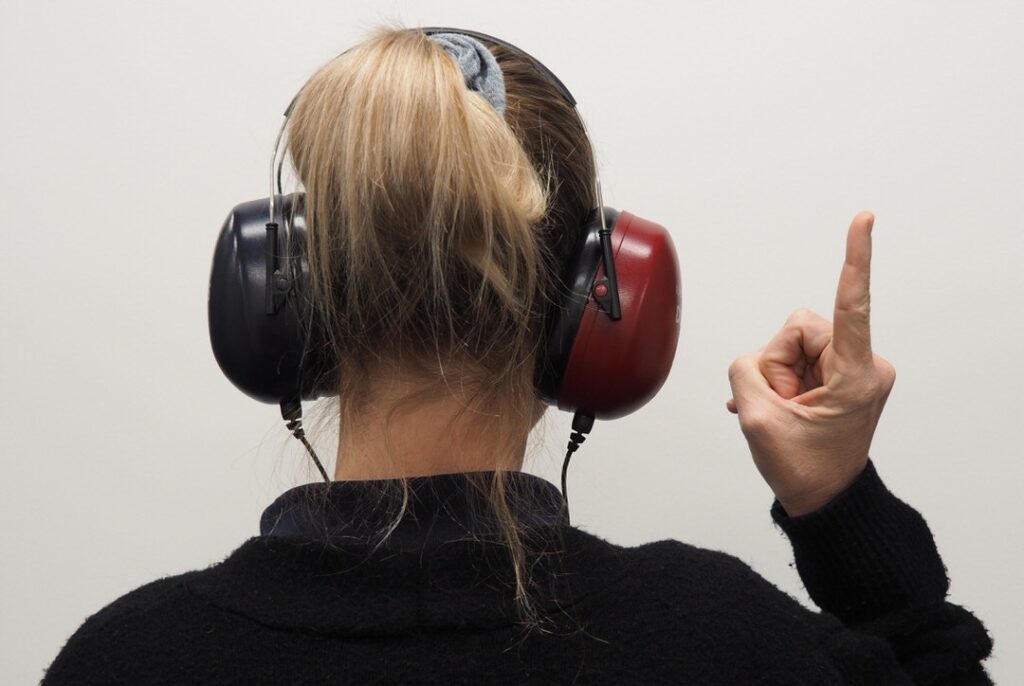
We are living in an age when the sound of a human playing an instrument competes with computerised beats and synthesised melodies. While there is an undeniable rise in digital music production and consumption, music played by humans still holds significant value and benefits over digital music. But why Is Orchestral Meditation Music Better Than Digital?
Our brain has a definitive preference for one over the other. Hence, this article ventures into the fascinating world of neuroscience and psychology to provide solid scientific reasons, backed by statistics and citations, that shed light on the astounding impact of human-produced music on our brain.
Join us as we unravel the mysteries of music’s undeniable power to captivate, soothe, and nurture our neural pathways – a journey worth a read for anyone seeking an authentic and immersive experience.


Comparative studies on human-played and digital music highlight the differences in their effects on the brain.
For instance, music to decrease agitated behaviour in dementia patients showed that live, human-performed music had a more significant impact than pre-recorded music on reducing agitation. And while it has revolutionised how music is consumed, digital music loses some human emotional connection in its creation and distribution.


People generally find comfort in consistency, but when it comes to music, having a bit of unpredictability can enhance our emotional response. Live music performances usually come with variations in tempo, dynamics, and expression, which can create a sense of connection and make the music feel more alive.
On the contrary, computerised digital music is often more consistent and predictable, which may cause our brains to become less engaged and lose interest more quickly.
One of the most powerful aspects of music is its ability to evoke emotions. Studies have shown that the emotional power of music primarily comes from the subtle nuances and expressivity that live musicians bring to a performance.
Unfortunately, digital music can sometimes fall short of capturing the emotional depth and richness that a human musician can offer. While advances in technology have certainly improved the expressiveness of digital music, there are still certain limitations that may prevent it from engaging our brains in the same way as live music.


A fascinating aspect of music lies in its ability to evoke emotional responses and engage the human brain. Studies show that the experience of listening to music performed by humans can positively affect the brain compared to computerised digital music.
For instance, a study published in the Annals of the New York Academy of Sciences found that listening to music could positively influence neural mechanisms after stroke. The study highlights the potential power of live-performed human music in enhancing neurological responses.
Moreover, when it comes to the psychological effects of music, the human touch becomes crucial. Live music played by humans often carries an inherent emotional depth and authenticity, which can trigger a greater emotional response from listeners.
While useful in some situations, computerised digital music may lack this emotional connection. This may lead to a different psychological impact on the listener.
Here are some scientific reasons why music played by humans can offer unique qualities and benefits:
Human performances can elicit emotional contagion, where the emotions expressed by musicians can be transferred to the listeners. This is due to the mirror neuron system in our brains, which allows us to understand and empathise with the emotions of others.
Musicians bring their intentions, interpretations, and artistic choices to their performances, making them unique. This personal touch adds depth and authenticity to the music, connecting listeners with the artist’s vision and creativity.
Human musicians have the ability to express a wide range of emotions and dynamics through their performances. They can add subtle variations, nuances, and improvisations, enhancing the music’s expressiveness and emotional impact.
Human musicians have a natural ability to adjust the timing, tempo, and rhythm during a performance based on the atmosphere, audience response, or personal artistic expression. This flexibility allows for spontaneity and adaptability, making the music feel more organic and alive.


In this fascinating journey, we’ve uncovered how the human brain interacts with music, comparing live human performances and computerised digital tunes. The compelling evidence of studies highlights the unique manner in which our brains process and perceive music played by fellow humans.
One might wonder about the reasons behind this intriguing difference. Delving into neuroscience, we’ve discovered that live-human recordings offer emotional cues and intricate subtleties that engage our brains on a deeper level, fostering a richer and more visceral experience.
Digital music, while convenient and ubiquitous, often lacks the spontaneity and responsiveness intrinsic to live human performances. These artistic flourishes resonate with our minds, stirring an emotional connection transcending mere auditory perception.
Human music’s organic and perfectly imperfect nature entrances us, provoking an invigorating experience that digitised pieces find hard to match.
This is exactly why Orchestral Meditations exist. Having 120 world-class musicians in a studio, creating music together, and playing as one, has a much higher benefit to the practice of meditation than pure digital music alone.
As our ever-evolving world continues to merge technology with artistic expression, it becomes important to appreciate the irreplaceable magic of the human touch in music.
But don’t just take our word for it. Here are the professionals and their opinions:
A 2017 study published in the journal PLOS ONE found that listening to classical music played by live musicians led to greater increases in oxytocin, a hormone associated with social bonding and stress reduction, compared to listening to the same music played by a computer. A second study published in the journal Neuroscience Letters found that listening to live music played by a string quartet led to greater activation of the reward centres in the brain compared to listening to the same music played by a computer.
A study by Alluri et al. (2012) found that live music performances increased emotional and social cognition-related brain activity in listeners, enhancing emotional processing and connectivity in the brain. Large-scale brain networks emerge from dynamic musical timbre, key, and rhythm processing. NeuroImage, 59(4), 3677-3689. doi: 10.1016/j.neuroimage.2011.11.019
Mirror neurons are a type of brain cell that fire when we perform an action and observe someone else performing the same activity. Live performances by human musicians can activate mirror neurons, enhancing empathy and emotional resonance with the music. Music and mirror neurons: From motion to ’emotion. Social Cognitive and Affective Neuroscience, 1(3), 235-241. doi: 10.1093/scan/nsl029
A study published in Frontiers in Psychology found that listening to live recorded music had a greater positive effect on mood and stress reduction than digital recorded music. The study also found that live music had a greater impact on the autonomic nervous system, which regulates bodily functions such as heart rate and breathing.
Live performances by human musicians have been shown to engage emotional processing regions in the brain. A study published in Frontiers in Human Neuroscience (Koelsch et al., 2008) used functional magnetic resonance imaging (fMRI) and found that live music performances activated brain areas associated with emotional processing, such as the amygdala and hippocampus.
Not at all. We are not saying digital music isn’t useful and important. It is. But having the human emotion and frequencies being played by a symphony orchestra, combined with digital music, creates the best of both worlds. Read this article here for more info.
Human-played music has been proven to positively impact our brains, eliciting emotions and boosting cognitive abilities. Studies have shown that human-played music can stimulate the release of dopamine, a neurotransmitter associated with pleasure and reward (source).
Music can affect our moods, evoke memories, and help us process emotions. It’s also been shown to enhance cognitive functions, such as learning and memory, by engaging various parts of the brain. When we actively engage with music, like playing an instrument, our brains forge new connections and strengthen existing ones, enhancing overall cognition (source).
Yes, different genres and styles of music can have varying effects on the brain. Some music genres are soothing and calming, decreasing stress levels, while others may excite and energise the listener. The specific results depend on the tempo, rhythm, and other musical elements and individual preferences (source).
Listening to music can help improve focus and concentration. Certain types of music, such as classical or ambient, can create a more conducive environment for concentration and study. By drowning out background noise and creating a calming atmosphere, music can help listeners stay focused and productive (source).
While music has numerous positive effects on the brain, it’s also important to be aware of potential drawbacks. For instance, listening to loud, aggressive music can increase feelings of stress or agitation. Moreover, continually exposing yourself to high volume levels may damage your hearing over time. It’s best to enjoy music mindfully and choose genres that positively affect your mental state (source).
To provide the best experiences, we use technologies like cookies to store device information for a better experience.